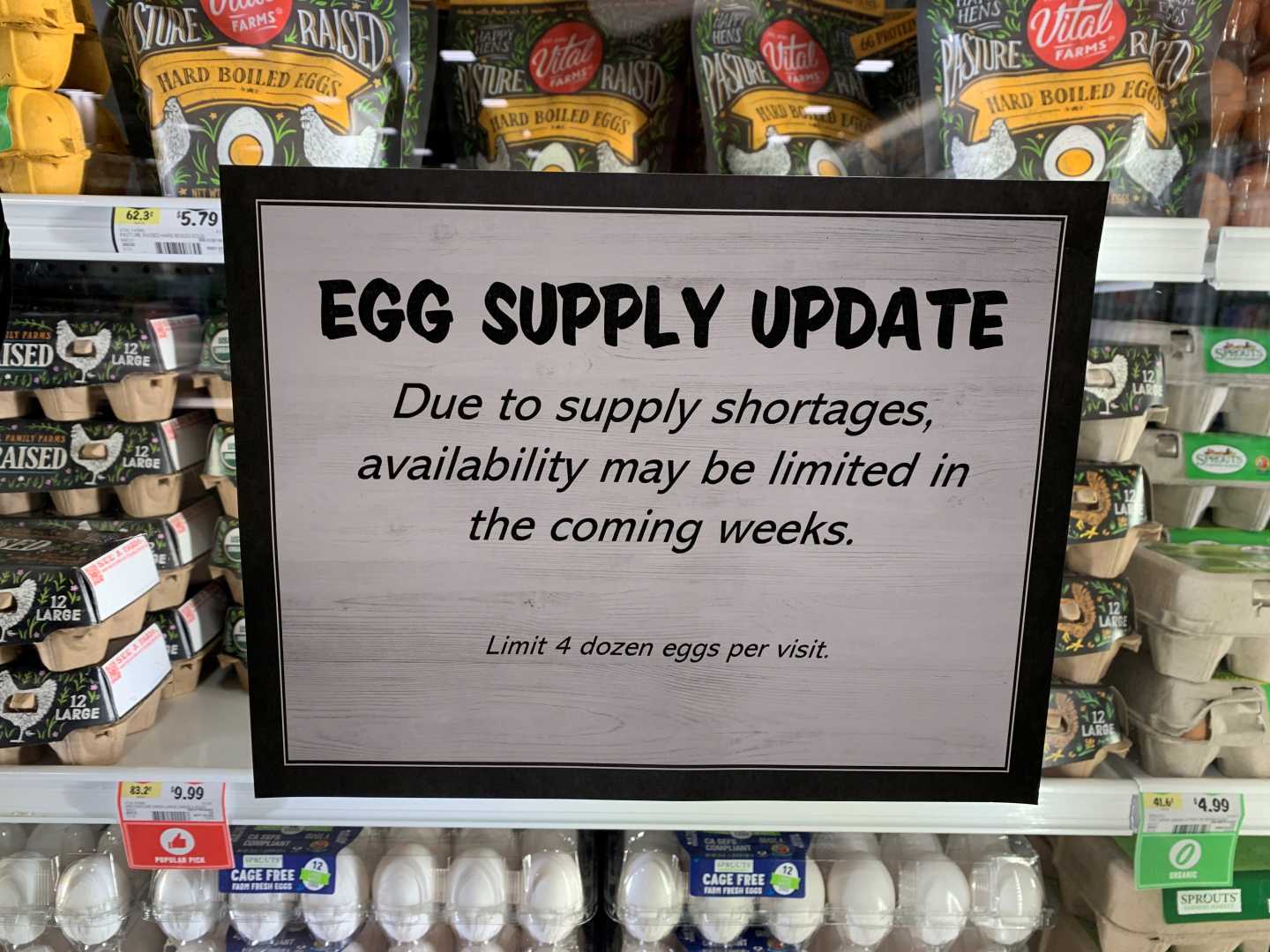Health
Egg Prices Soar Nationwide Amid Bird Flu Outbreak, Louisiana Faces First Human Death

BATON ROUGE, La. — Egg prices have surged across the U.S., with Louisiana residents feeling the pinch as the state recorded the nation’s first human death from the H5N1 bird flu virus. The patient, who contracted the virus after exposure to a backyard flock and wild birds, died on Jan. 6, according to the Louisiana Department of Health.
Nationally, egg prices have risen nearly 38% over the past year, with a sharp 8% spike in November alone, according to USDA data. The average price for a dozen eggs now stands at $3.65, up from $2.14 a year ago. Prices are highest on the West Coast at $4.20 per carton and lowest in the South at $3.40.
While Louisiana has not reported bird flu cases in its commercial chicken populations, the state relies heavily on eggs shipped from regions like California and the Midwest, where outbreaks have significantly reduced the number of egg-laying birds. “Louisiana doesn’t produce enough eggs to meet local demand,” said William Strickland, an agriculture and natural resources extension agent with LSU’s AgCenter. “Last year, the state produced about 50 eggs per person, far below the average annual consumption.”
Strickland noted that refilling egg-laying flocks will take time, and prices are unlikely to drop soon. “I don’t think in a month, egg prices are going to drop back down,” he said. “The situation is compounded by rising feed, fuel, and labor costs.”
Despite the price hikes, Strickland reassured consumers that properly cooked eggs are safe to eat. “The USDA has protocols to prevent the virus from entering the food supply, and cooking kills the virus,” he said. “H5N1 usually causes mild symptoms in humans, though this was the first fatal case in Louisiana. Nationwide, there have been about 60 cases, most of which were not severe.”
As shoppers navigate sparse grocery store aisles and higher prices, Strickland emphasized that the bird flu’s impact on poultry is more severe than on humans. “It’s very deadly in birds, and the USDA has a playbook for handling outbreaks, including depopulating affected farms,” he said. “This ensures the virus doesn’t enter the food supply.”












